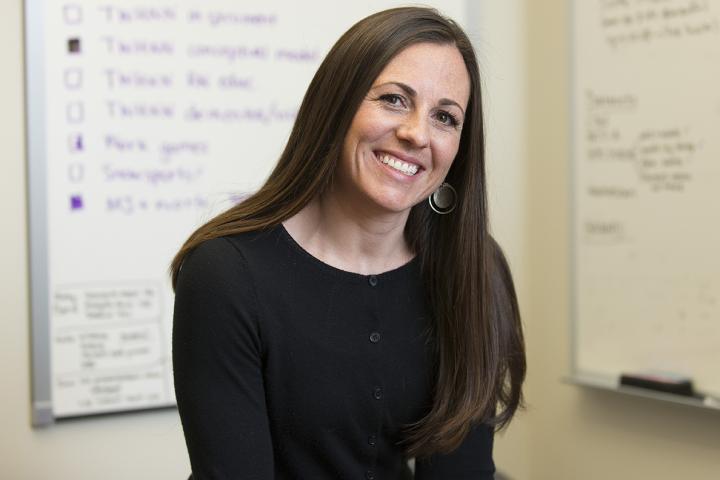
Credit: WSU
SPOKANE, Wash. — English proficiency shouldn’t be a barrier to health care. That’s why the federal government requires hospitals to make translated documents and interpreters available to patients.
But a patient who needs language services would have to navigate through one to four web pages in English to find information on such services at most hospitals in Washington, according to a new study led by Associate Professor Janessa Graves of the Washington State University College of Nursing. The research was published recently in the Journal of Immigrant and Minority Health.
The study examined the website of each of Washington’s 93 licensed hospitals.
Graves said her team decided to focus on websites because many patients consult them for information ranging from what to expect during a medical procedure to the availability of financial assistance. Patients also might look at a hospital website to learn about language translation services in preparation for an appointment.
Only 20% of the hospital websites listed language services on their homepage, and in many cases that information was listed in English.
“The hospitals are telling people, ‘Yes, we’ll translate for you,’ but they’re telling people that in English, which seems counterintuitive,” said Graves, who’s also associate dean of undergraduate and community research.
Research has shown that patients who aren’t fluent in English receive poorer quality of care, have lower comprehension of health care encounters and are less likely to follow provider recommendations, which can contribute to health disparities.
Hospitals and other organizations that receive federal funds are required to provide meaningful access to their programs and services for patients whose primary language is not English.
About 7.6% of Washington residents over age 5 speak English less than “very well,” a status referred to as having limited English proficiency (LEP). Nationally, the number of people in that category more than doubled from 1980 to 2015. In Washington, the most common languages spoken at home other than English are Spanish, Chinese, Russian, Tagalog, Korean and Vietnamese.
Despite federal requirements to provide language services, such as in-person or telephone interpreters and translated websites, “few details are known about the actual language assistance services provided to patients with LEP” by hospitals, the study noted.
Just 10 hospitals provided a translated version of their website, with the most common languages being Spanish, Japanese, Korean and Russian. No hospital offered translation into Chinese “despite it being a commonly spoken language in the state,” the study said.
Large hospitals and those with higher revenue included language service information on their websites more often than smaller hospitals did, the study found. However, there was no significant association between the size of a county’s LEP population and whether a hospital included those services on its website.
Graves said the study is a snapshot in time, with researchers evaluating websites in February 2018. The study didn’t look at what kinds of services are available at the hospitals, just whether those services are listed on the website. That will be the topic of a subsequent study, she said.
“We can’t advocate to improve services if we don’t know what’s there currently,” she said. “This paper is a call to action to ask hospitals to keep up-to-date websites.”
Besides Graves, other investigators on the study, titled “Too Little Information: Accessibility of Information about Language Services on Hospital Websites,” were Megan Moore, Carmen Gonzalez, Joana Ramos, Lilian Nguyen and Monica S. Vavilala. Nguyen was a WSU College of Nursing undergraduate student at the time the research was conducted.
The study was carried out through a collaboration with the Language Access Research for Community Health (LARCH), whose members include universities and community advocates. Funding was provided in part by a grant from the Health Equity Research Center, a strategic research initiative of Washington State University.
###
Media Contact
Janessa Graves
[email protected]
509-324-7257
Original Source
https:/
Related Journal Article
http://dx.




